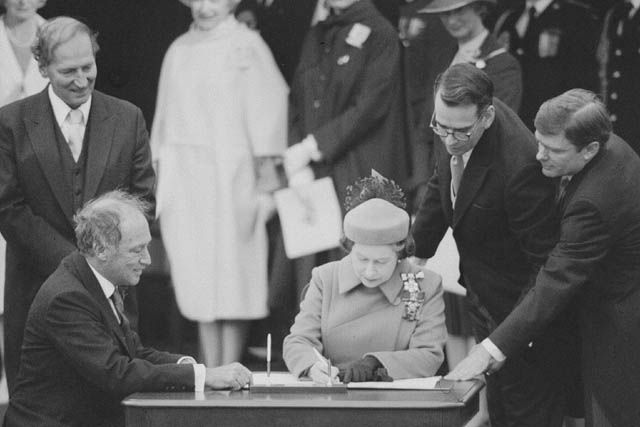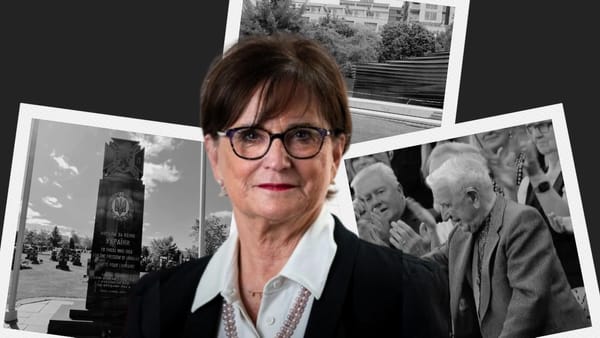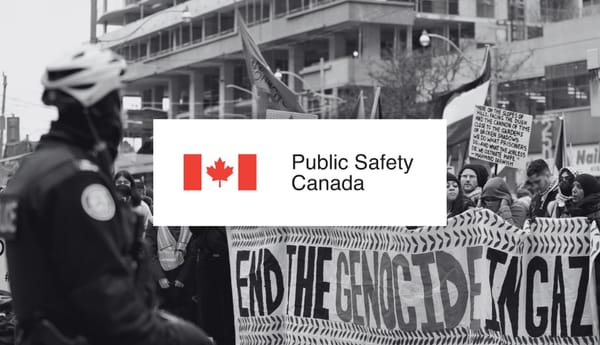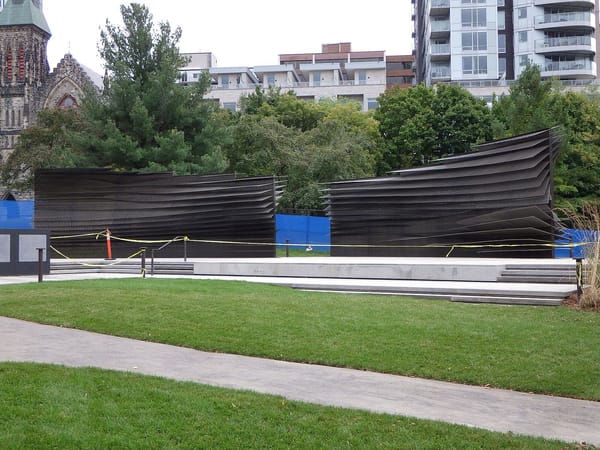In the final moments of this campaign, Prime Minister Justin Trudeau said he was open to the idea of electoral reform, so long as there’s consensus beforehand.
In 2015, of course, he said that election would be the last one under the first-past-the-post voting system, and then broke the promise, claiming he couldn’t find consensus. Trudeau discovered Canadians had their own ideas about how electoral reform should move forward, and decided we were an impediment. So, electoral reform was off the table nearly as soon as Trudeau was elected in part on it.
This is certainly not the first time politicians have decided that despite the consistently well-received rhetoric of change, the country can’t move forward. Over the years, Canadians have been offered a litany of excuses for why popular, large-scale national projects can’t be implemented: proposals are potentially too divisive; they infringe on provincial areas of jurisdiction; they require acrimonious constitutional negotiations our patrician prime ministers wouldn’t dare ‘force’ upon the people.
For the most part, the people — aside from those already committed to the various regional separatist causes — don’t seem to be overly concerned with areas of provincial jurisdiction or the difficulties inherent to high-level negotiations among politicians: some of us are just dumb enough to believe this is what politicians do. Instead, this stasis is the result of a political class meant to serve the small cadre of elites who’ve run this country since time immemorial, and an establishment media that serves them.
What’s particularly problematic is that, while Canada’s constitution has evolved over the course of the country’s existence (and in each case the effort was intended to solve a host of pent up jurisdictional and governance problems), in the wake of the 1982 Constitution we’ve been collectively told no further evolution is possible. Thus, Canada has a constitution that unfairly privileges older generations and locks the country into an outdated political framework.
Some Canadians think ourselves better than the Americans — whose internal dysfunction is largely rooted in the efforts of a cabal of constitutional fundamentalists — yet are apparently blind to the extent of which this diseased way of thinking has polluted our own politics.
Take it from a historian: no political or governing document from the past will ever address the wants, needs and aspirations of an evolving nation. At most, our previous constitutions can form a foundation on which new ones can be built — and this has historically been the case. The Constitution of 1982 is much better than the Statute of Westminster or the British North America Act. But it doesn’t address the new realities of Canada, nor does it offer solutions to any of a host of serious problems and challenges to our democracy, nor to broader existential crises that have only become widely apparent in recent decades.
Consider that we retain an unelected head of state who reports to a foreign monarch and has the ability to unilaterally decide what’s in the best interest of the nation vis–à–vis what kind of government runs it. This is a position that requires no prior political, government or even leadership experience.
Do we keep the position of governor general, abolish it or make it an elected position? Do we maintain our connection to the British Crown after the passing of Queen Elizabeth II? If we choose to end our relationship with the Crown— as Barbados is planning — what do we then do with treaties that were negotiated between it and Indigenous nations?
We have a senate stocked with unelected patronage appointments of equally unqualified individuals who have been given the important task of reviewing the work of Parliament.
Are we happy with the status quo, do we abolish the Senate or make it an elected body? If we go with the last option, do we keep the appointed senators or start fresh? Alternatively, do we seek to redress centuries of de facto disenfranchisement (to say nothing of genocide) and establish an elected Indigenous Senate, where the rightful heirs of the land are given veto power over Parliament?
We have an electoral system that essentially disenfranchises every vote that isn’t cast for the winning candidate in a given riding, and routinely results in parties that earn more of the popular vote getting fewer seats. Thus, Parliament is not truly representative of the people.
Interest in electoral reform is apparently strong enough that candidates can run on it, and it’s equally clear Canadians are so fed up that they’ll vote in favour of reform, yet the nation is still nowhere close to actually examining alternatives. Tangentially related issues that would increase voter turnout — such as lowering the voting age, making voting mandatory or mandating elections either be held on the weekend or on a statutory holiday — also need to be considered, especially given this election’s dismal participation rate.
There are approximately 600 supposedly fully independent Indigenous bands and nations in Canada whose sovereignty is subject to the whims of energy companies and their partners in provincial governments and police forces. Unsurprisingly, there are also hundreds of unresolved land claims, and despite an apparent societal interest in reconciliation, politicians’ interest evaporates when it comes down to addressing some of the more important issues.
The tectonic shift in Indigenous self-determination and sovereignty that has occurred in the past 40 years, to say nothing of the on-going realization of the extent of this nation’s efforts to eliminate the Indigenous population, are reasons enough to develop a constitution specifically aimed at addressing these longstanding issues.
Several specific issues have also arisen in just the past few years that amply demonstrate that a profound ignorance of how the constitution works can benefit the political establishment.
Premier Jason Kenney can commit the people of Alberta to a non-binding referendum on equalization payments based, seemingly, on the false premise the province is paying for Quebec’s generous social programs. It doesn’t seem to matter that this isn’t how equalization works. Similarly, Quebec Premier François Legault was told he can make unilateral changes to the constitution based on the false premise that the French language is threatened in Quebec, even though the most recent census report indicates that the number of Canadians who can speak the language has been steadily increasing since Confederation.
Then there are all the new problems that have developed in the years since the Constitution was patriated, which have no hope of being resolved without a fresh round of negotiations, including the reduction of the federal government’s power.
The mishandling of the pandemic illustrates just how far we’ve allowed this to go: Trudeau took a largely hands off approach, and allowed the provinces to each go about it their own way. Amazingly, we looked down our noses at the ineffective ‘states rights’ approach the Americans took, even while those in power here were doing no better.
The pandemic, much like the climate emergency, is an on-going problem requiring new and evolving long-term solutions, and a strong central federal government to set national standards, approaches and policies.
There’s so much more: Should Canada’s largest cities still be dependent on provincial governments, or should they be given the means to develop more autonomously? Should the executive branch of government be elected separately from the legislative, given we’re all supposed to be voting for someone to represent the riding we live in, yet wind up casting votes for a national leader instead? Should provinces whose economies are largely dependent on resource exploitation continue to be allowed to do this in the era of a climate emergency? If not, how do we ensure the people of those provinces aren’t penalized?
What about improvements to the Canada Health Act, such as dental care and pharmacare? Or a national electrical grid to get off non-renewable energy sources? Do we really still want to be a part of NATO? Or NAFTA? Given the CERB’s demonstrable success, isn’t it time to consider moving forward on a guaranteed basic income? And should any of this be held up by a single provincial government?
Eventually, those in power are going to have to address the fact that the country isn’t really working all that well, and that we need a federal government capable of leading on big national projects without being constantly hamstrung by provincial obstructionism. The pandemic and the government’s anemic response to the climate crisis both demonstrate that Canada is operating as a very loose confederacy, one whose dysfunction is killing people.
Canada needs a new constitution that more accurately reflects the desires of the people who live here.







